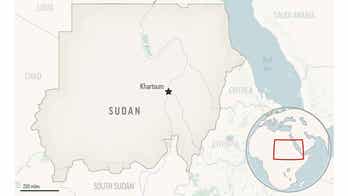Heavy rains have battered Kenya, leading to widespread flooding that has forced the evacuation of tourists from the Maasai Mara national reserve and claimed the lives of over 170 people since mid-March. The Metrology Department warns that more rain is expected this week, exacerbating the already dire situation.

Kenya's Maasai Mara national reserve, a popular tourist destination known for its annual wildebeest migration, has been severely affected by heavy rains that have caused a river within the reserve to break its banks, flooding tourist accommodation facilities and stranding dozens of tourists. The Kenya Red Cross has rescued over 90 people, while the Narok County government has deployed two helicopters to assist in the evacuations.
The impact of the flooding extends beyond the Maasai Mara. More than 170 people have died across Kenya since the rainy season started in mid-March, with flooding, landslides, and infrastructure damage taking a heavy toll. In the Mai Mahiu area of western Kenya, a river broke through a clogged tunnel, sweeping away houses and damaging roads. The incident left 48 people dead and over 80 others missing, with search and rescue operations still ongoing.

President William Ruto has ordered the military to join in the search efforts, but locals have expressed frustration with the slow pace of rescue operations due to the lack of equipment. The government has urged people living in flood-prone areas to evacuate or face forced relocation as water levels in two major hydroelectric dams reach "historic highs."
In the capital, Nairobi, three major roads were temporarily closed due to flooding, and the Kenya Red Cross rescued 11 people from a flooded residential area on the outskirts of the city.
The Metrology Department has issued warnings of more rain this week, prompting concerns that the situation could worsen. The government has advised residents to stay vigilant and take necessary precautions, including avoiding flooded areas and being prepared for possible evacuations.
The flooding has also caused significant economic losses, with reports of extensive damage to infrastructure, homes, and businesses. The tourism industry is particularly hard-hit, as the flooding has disrupted travel plans and forced the closure of numerous lodges and camps in the Maasai Mara and other affected areas.
International aid organizations are mobilizing to provide assistance to the flood-affected communities. The Kenyan Red Cross is on the ground, providing food, water, shelter, and medical care. The United Nations has also dispatched humanitarian teams to support the government's response.
The ongoing flooding in Kenya highlights the vulnerability of communities to extreme weather events, particularly in regions where climate change is exacerbating the intensity and frequency of rainfall. The government is facing calls to prioritize disaster preparedness and resilience measures, including investments in infrastructure, early warning systems, and community-based disaster management programs.










